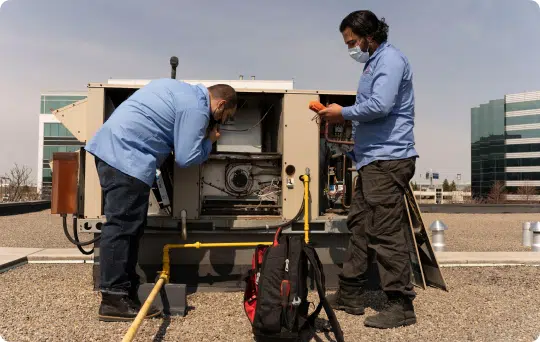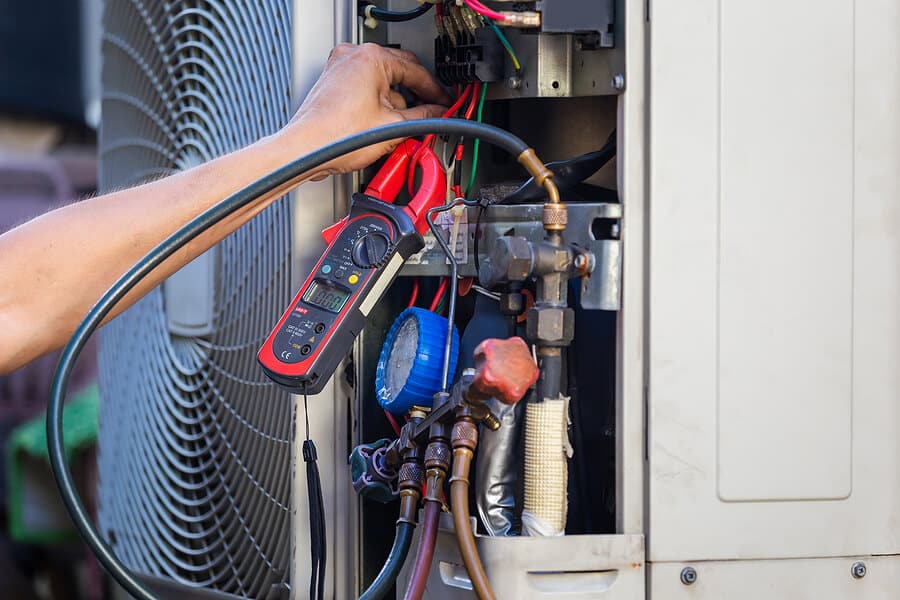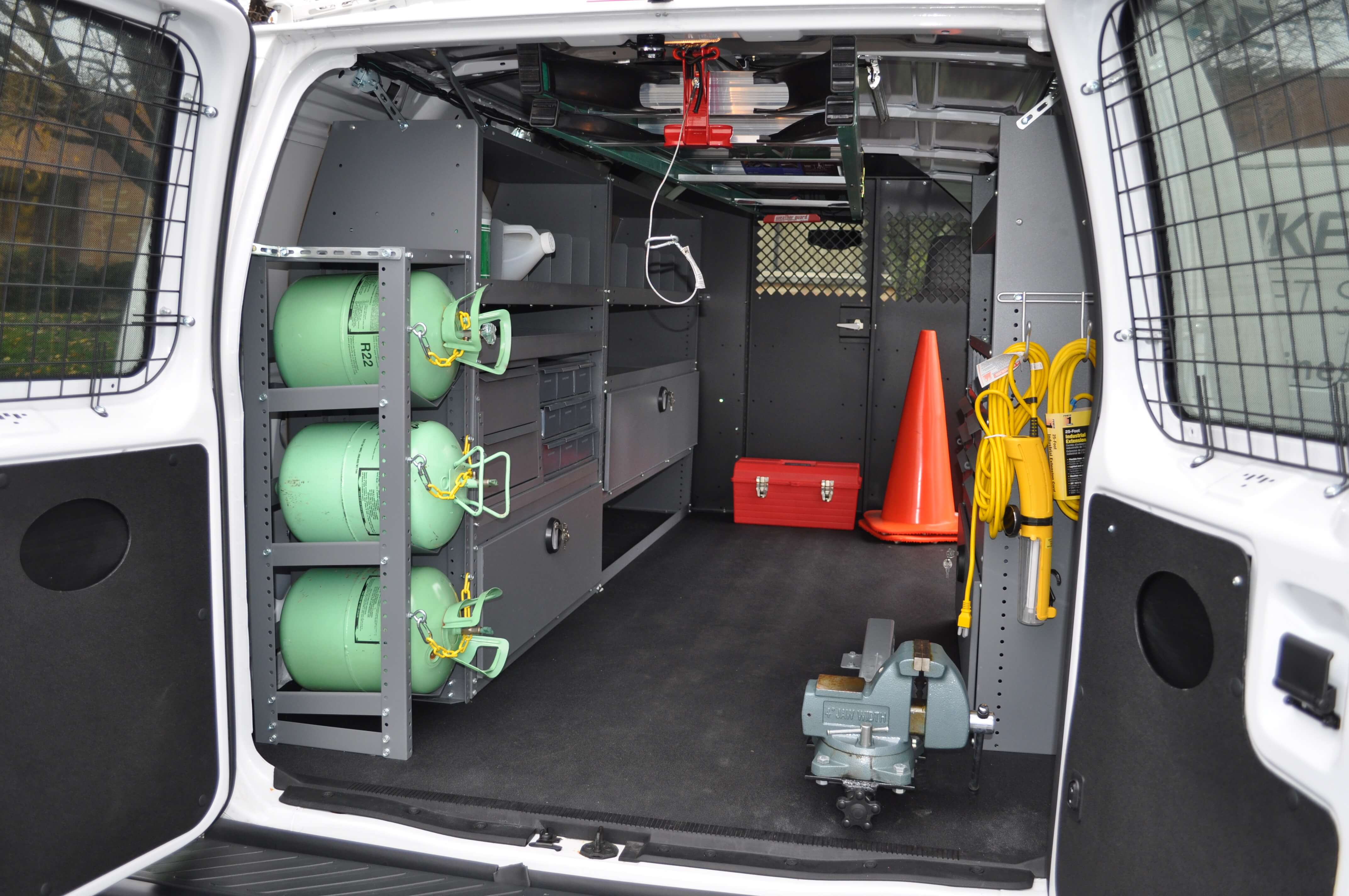Trustworthy Team at DMAKS HVAC for Complete Comfort.
Trustworthy Team at DMAKS HVAC for Complete Comfort.
Blog Article
Energy-Efficient HVAC Solutions to Conserve on Utility Costs
As power expenses continue to increase, the importance of energy-efficient HVAC systems comes to be significantly noticeable. These systems not just guarantee substantial financial savings on energy costs however additionally contribute to a more lasting future by lessening power usage.
Advantages of Energy-Efficient A/c Systems
Energy-efficient Cooling and heating systems offer countless advantages that expand beyond simple cost financial savings. By consuming less power, these systems add to lower greenhouse gas exhausts, assisting to fight environment change and promote sustainability.
In addition, energy-efficient HVAC systems typically provide boosted comfort levels. A lot of these systems include advanced innovation that permits much better temperature level control and enhanced air top quality (DMAKS HVAC). This causes a healthier interior atmosphere, which is especially important for individuals with allergic reactions or respiratory concerns
Additionally, purchasing energy-efficient heating and cooling systems can enhance building worth. As even more consumers prioritize energy effectiveness, homes and structures furnished with these systems might draw in greater quotes in the property market.
Kinds of Energy-Efficient HVAC Options
How can home owners and companies choose one of the most ideal energy-efficient a/c options for their needs? The market uses a variety of energy-efficient cooling and heating systems, each made to boost convenience while lessening power intake.
One alternative is the variable cooling agent flow (VRF) system, which efficiently regulates the temperature level in multiple areas within a building. This system adjusts its cooling agent circulation to match the desired temperature, resulting in significant power financial savings.
Another prominent option is geothermal heat pumps, which utilize the earth's secure temperature to heat and trendy spaces. By moving heat to and from the ground, these systems demonstrate remarkable efficiency, particularly in moderate environments.
Furthermore, ductless mini-split systems provide an energy-efficient choice for homes lacking ductwork. These systems enable zone-specific heating and air conditioning, minimizing power waste in vacant areas.
Finally, high-efficiency heaters and ac system, with sophisticated SEER and AFUE rankings, supply dependable environment control while taking in much less energy than typical versions. By reviewing these alternatives, home owners and businesses can choose a heating and cooling system customized to their certain demands and energy effectiveness goals.
Trick Functions to Take Into Consideration

Next, explore the sort of compressor used in the system. DMAKS HVAC. Variable-speed compressors can adjust their result to match the heating or cooling need, resulting in boosted comfort and energy financial savings compared to single-speed versions. Additionally, look for systems furnished with smart thermostats that use programmable settings and remote access, permitting better control over energy intake
Another crucial feature is the system's air filtration capacity. High-efficiency filters can improve interior air top quality and lower power intake by ensuring the system runs efficiently. Additionally, consider the sort of refrigerant made use of; contemporary systems typically use environmentally friendly refrigerants that have a lower environmental effect.
Finally, ensure that the system is compatible with zoning innovation, which allows for customized temperature control in different locations of your home, improving comfort while reducing energy use.
Tips for Selecting the Right System


Next, consider energy effectiveness rankings, especially the Seasonal Power Efficiency Proportion (SEER) for cooling systems and the Annual Gas Usage Performance (AFUE) for heater. Greater ratings show better effectiveness, which can bring about significant savings on utility expenses over time.
Furthermore, assess the type of HVAC system that best matches your way of living and spending plan. Options consist of basics central air, ductless mini-splits, and warm pumps, each with its own set of advantages and drawbacks.
Do not neglect the importance of correct installation and Check This Out sizing; an incorrectly sized system can result in ineffectiveness and boosted wear. Last but not least, consult with an expert cooling and heating service provider to acquire expert referrals tailored to your home's distinct demands. This comprehensive approach will certainly make certain that you pick an energy-efficient cooling and heating system that satisfies your demands and budget plan effectively.
Maintenance for Ideal Performance
When the best cooling and heating system is in area, recurring maintenance ends up being essential to ensuring optimum efficiency and long life. A properly maintained system runs more successfully, causing lower energy intake and lowered energy expenses. Regular evaluations and tune-ups should be arranged at the very least twice a year-- once prior to the air conditioning period and when before the home heating period.

Homeowners ought to likewise be cautious about monitoring their heating and cooling system's efficiency. Unusual sounds, rising and fall temperatures, or increased power costs can indicate underlying issues that need prompt focus. By addressing these worries immediately, homeowners can stop pricey fixings and prolong the life expectancy of their systems.
Investing in an upkeep strategy with a certified technician not only improves performance but straight from the source additionally offers comfort, knowing that the system is operating at its best. DMAKS HVAC. Regular upkeep is consequently essential for sustaining energy performance and lowering general operational prices
Conclusion
To conclude, energy-efficient a/c systems provide a practical service for reducing energy costs while boosting convenience and air quality. By including advanced innovations and options such as geothermal warm pumps and ductless mini-splits, residential or commercial property owners can achieve significant power savings and add to ecological sustainability. Mindful consideration of system features and ongoing maintenance better makes certain optimal performance, making energy-efficient systems a prudent financial investment for both economic and environmental benefits.
Report this page